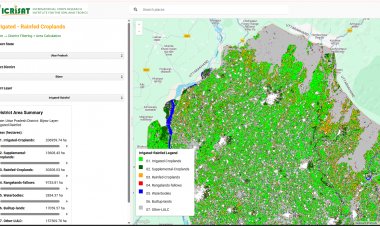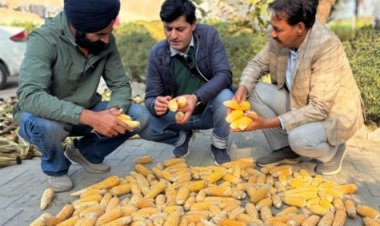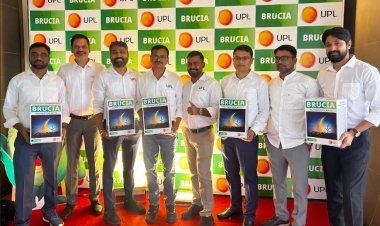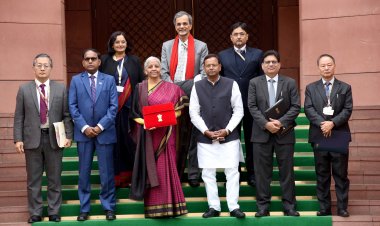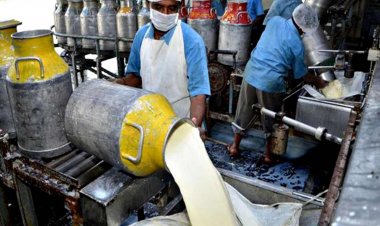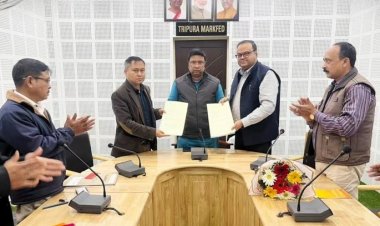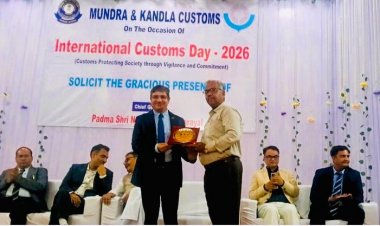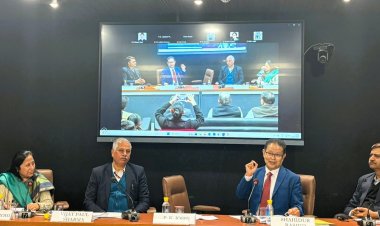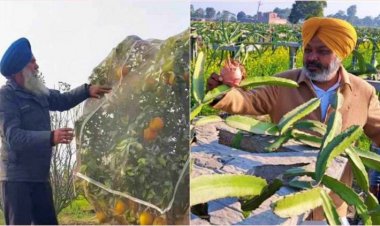RiceTec and Mahyco's joint venture 'Paryan' for DSR rice and zero tillage wheat
RiceTec, an American company, and Mahyco Private Limited from India have formed a joint venture named Paryan to develop and market sustainable, herbicide-tolerant varieties of wheat and rice. Paryan will utilize RiceTec's proprietary FullPage technology for Direct Seeded Rice (DSR) and Myco's FreeHit Cropping Solution for zero tillage wheat farming.
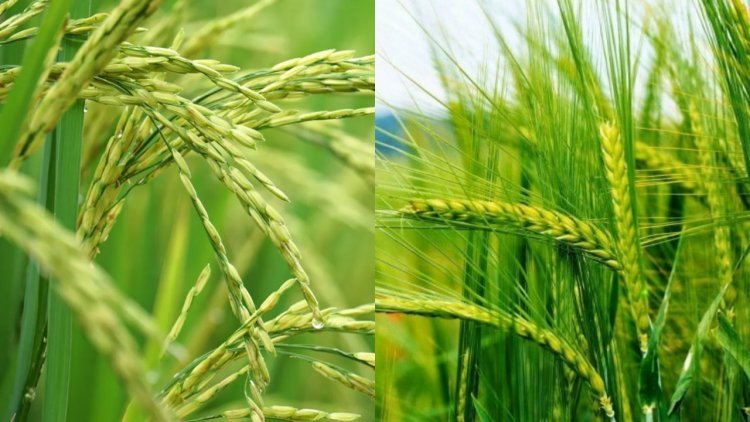
To develop and market climate-smart and herbicide-tolerant varieties of wheat and rice, American company RiceTec and Indian company Mahyco Private Limited have established a joint venture (JV) named Paryan. In this joint venture with equal stake, RiceTec's subsidiary Savannah Seeds Private Limited will be responsible for selling rice varieties, while Mahyco will market wheat seeds. Rice varieties have been developed for the Direct Seeded Rice (DSR) sowing process, while wheat varieties have been developed for sowing through zero tillage technology.
Ajay Rana, Managing Director of RiceTec's South Asia subsidiary Savannah Seeds Private Limited, told Rural Voice that the technology adopted for the new seeds will help farmers save on the cost of preparing the field and labour. These varieties are climate-friendly. Also, there will be no need to burn stubble to sow wheat after harvesting paddy. That is why the name 'Paryan' for the joint venture is derived from the environment. Both companies have a 50% stake in Paryan Alliance Limited. RiceTec's proprietary technology FullPage will be used for DSR, and the FreeHit Cropping Solution developed by Mahyco in collaboration with the US company Geneshifters will be used for zero tillage.
Ajay Rana said that both these technologies complement each other and are capable of bringing about a significant change in the states with wheat and paddy crops. After harvesting paddy in Punjab, Haryana, Uttar Pradesh, and Bihar, wheat is sown in about 120 lakh hectares. Along with providing FullPage and FreeHit technology to the farmers of these states, Paryan's team will also prepare and support the farmers for its use. Paryan aims to increase the production of wheat and rice in the country as well as reduce the cost of production for farmers while reducing the water, labour and fuel consumption, and reduce the emission of greenhouse gases.
Savannah Seeds' hybrid rice varieties Sava134 and Sava127 are suitable for spraying Imazethapyr herbicide to control weeds. For that, the DNA sequence has been altered to use a mutated gene. Similarly, Mahyco's wheat Goal and Mukut varieties have been prepared for the spray of Imazethapyr. Weeds can be destroyed by spraying Imazethapyr 25 days after sowing these rice varieties through DSR and wheat varieties through zero tillage, but the rice and wheat crops will remain completely protected.
Ajay Rana says that only one spray is enough for their varieties. We have used mutation breeding for the herbicide-tolerant trait, and foreign genes have not been used, unlike GM crops. The traditional cultivation process of rice requires a lot of water and labour. First, to prepare the field, after filling it with water, the soil has to be made soft so that paddy can be transplanted. After that, water has to be kept stagnant in the field for several weeks so that weeds do not grow in it.
Rana says that 30 percent of water will be saved through DSR. At the same time, the cost incurred on ploughing, pludding, transplanting and flooding the field is also saved. In RiceTec's FullPage technology, along with the seed being herbicide-tolerant, the seed is treated with essential nutrients so that its germination is better. They have prepared Squad Solution for seed treatment, which provides essential micronutrients and protects the seed from diseases. Therefore, their seed is completely suitable for DSR. It does not have the usual germination problems that are faced when sowing other seeds through DSR.
Last year, Savannah rice hybrids were sown in 4,000 acres of farmers' fields in Punjab and Haryana, 3,000 acres each in Madhya Pradesh and Chhattisgarh and 1,000 acres in Western Uttar Pradesh.
Shirish Barwale, Managing Director of Mahyco Pvt. Ltd told Rural Voice that the problem of stubble burning after harvesting the paddy crop arises due to the early preparation of the field for wheat sowing. Also, ploughing to prepare the field takes a lot of time and diesel. But both of these problems are addressed with their FreeHit (ZT) technology. With this, zero tillage sowing of wheat can be done because the problem of weeds can be dealt with by using Imazethapyr and Metribuzin herbicide.
In the zero-tillage process, farmers can sow wheat using a normal seed-cum-fertilizer drill machine after mixing the stubble with the soil using a rotavator. Herbicide is used 25 days after sowing. Mahyco has applied for government regulatory approval for the use of FreeHit zero tillage (ZT) technology for wheat in the upcoming Rabi season. It is expected that this technology will be used by farmers in this season. Barwale says Paryan is also ready to license the Imazethapyr-tolerant trait in wheat and rice to other companies, which they can use in their hybrid varieties.



 Join the RuralVoice whatsapp group
Join the RuralVoice whatsapp group

















